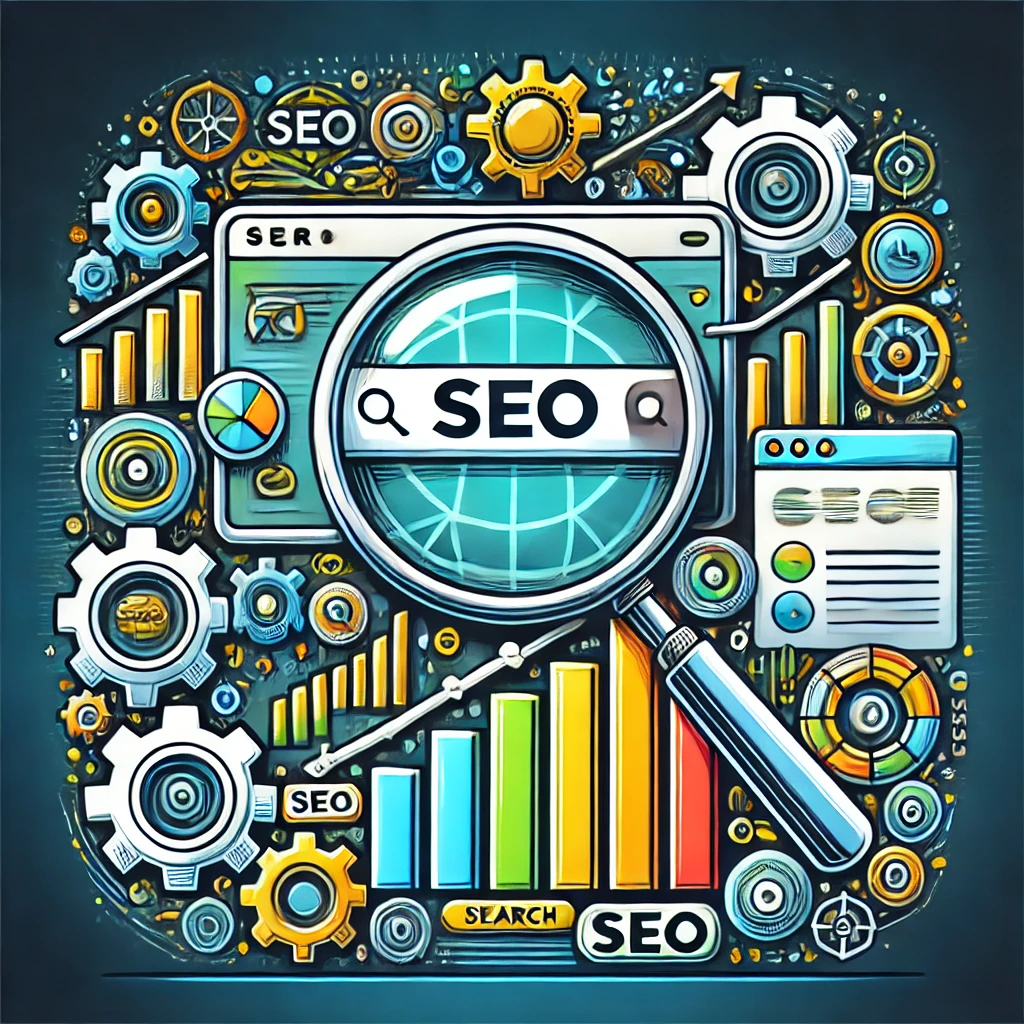Key Trends in the Future of SEO in 2024

Categories:
3 minute read
The future of SEO is poised to undergo significant transformations driven by advancements in technology, particularly artificial intelligence (AI) and machine learning. As we look ahead to 2024 and beyond, several key trends are emerging that will shape the SEO landscape.
Key Trends in the Future of SEO
1. Dominance of AI and Machine Learning AI and machine learning are becoming central to SEO strategies. Search engines like Google increasingly rely on these technologies to enhance their algorithms, allowing for a deeper understanding of user intent and improved content relevance. This shift necessitates that businesses focus on creating content that directly addresses user inquiries and employs natural language processing techniques[2][3][4].
2. Rise of Voice and Visual Search Voice search is on the rise, with predictions indicating that a significant portion of searches will be conducted through voice-activated devices. This trend requires marketers to optimize content for conversational queries and ensure mobile responsiveness. Similarly, visual search is gaining traction, prompting the need for image and video optimization to cater to users who prefer visual content[4][5][6].
3. User Experience as a Ranking Factor User experience (UX) is becoming increasingly important in SEO rankings. Websites that provide a seamless, engaging experience—characterized by fast loading times, intuitive navigation, and minimal intrusive ads—are more likely to rank higher in search results. This trend aligns with Google’s emphasis on E-E-A-T (Experience, Expertise, Authoritativeness, Trustworthiness), encouraging high-quality content production[2][3][5].
4. Answer Engine Optimization (AEO) With the emergence of AI-powered answer engines like chatbots and smart assistants, there is a growing need for AEO strategies. This involves optimizing content to provide direct answers to user queries without requiring them to click through to a webpage. Content must be concise and tailored for quick comprehension by AI systems[3][6].
5. Importance of Local SEO Local SEO continues to be vital for businesses targeting specific geographic areas. As users increasingly search for products and services nearby, optimizing for local search terms remains crucial. This includes ensuring that business listings are accurate and leveraging local keywords in content[2][4].
Adaptation Strategies
To remain competitive in this evolving landscape, businesses should consider the following strategies:
Embrace AI Tools: Utilize AI-driven tools for content creation and optimization to enhance efficiency while maintaining quality.
Focus on User Intent: Develop content strategies that prioritize understanding and addressing user needs effectively.
Optimize for Multiple Formats: Ensure that content is accessible across various formats—text, video, audio—to cater to diverse user preferences.
Invest in Data Analytics: Leverage data analytics to inform SEO strategies, enabling businesses to anticipate trends and tailor their approaches accordingly[5][6]. In summary, the future of SEO will be characterized by a blend of technological sophistication and a deep understanding of user behavior. By adapting to these trends, businesses can enhance their online visibility and maintain relevance in an increasingly competitive digital environment.
You may also want to read our 20 key chapters post about SEO success.
Citations: [1] https://www.semrush.com/blog/future-of-seo [2] https://www.linkedin.com/pulse/future-seo-predictions-strategies-2024-infiraise-he12f [3] https://www.semrush.com/blog/future-of-seo/ [4] https://tbs-marketing.com/the-future-of-seo-navigating-2024-and-beyond/ [5] https://zerogravitymarketing.com/blog/future-of-seo/ [6] https://trafficthinktank.com/future-of-seo/ [7] https://www.boostability.com/content/the-future-of-seo/ [8] https://www.forbes.com/councils/forbesagencycouncil/2024/02/02/ai-is-driving-the-future-of-seo-how-to-adapt/ [9] https://blog.hubspot.com/marketing/seo-predictions
Feedback
Was this page helpful?
Glad to hear it! Please tell us how we can improve.
Sorry to hear that. Please tell us how we can improve.